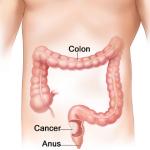An aggressive type of cancer surgery that's grown increasingly popular – and controversial – during the last decade is largely determined by patient preference, and not necessarily by sound medical reasoning.
Disease
For the vast majority of people who live in the developed world, infectious disease is an afterthought.
My heart sank when I received the news.
Nearly two years ago, my friend and colleague, Sam Chi, called to tell me that he had pancreatic cancer. I knew that was a death sentence.
Even though colorectal cancer (CRC) is the second-leading cause of cancer death in the US, and even though the
New reports out of Australia contain some sobering news.
The utility of mammography screening for breast cancer has been a bone of contention, but for some women it has been a life-saver.
In the United States, we are largely sheltered from some diseases which have a great disease burden globally. Tuberculosis (TB) is one such disease, accounting for nine million newly diagnosed cases and two million deaths annually.
Parkinson’s disease can be very visible; one need only think of Mohammed Ali or Michael J Fox. But in terms of commanding our medical and economic attention is seems to be more of an orphan disease.
Cholesterol levels in the blood are widely acknowledged indicators of heart disease risk.
In its latest weekly report, the CDC details the case of a woman from Arizona who died from tularemia, a rare disease that she acquired from her dog.












